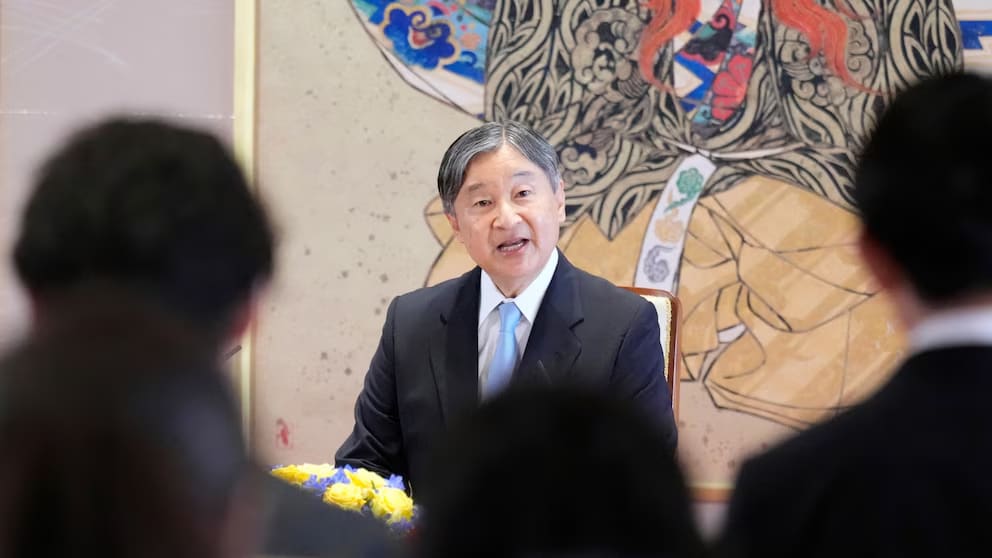In a significant and heartfelt gesture, Japan’s Emperor Naruhito recently expressed his intention to honor the memory of Japanese prisoners of war (POWs) who were detained in Mongolia following World War II. This announcement marks an important acknowledgment of a lesser-known chapter in history, spotlighting the Japanese soldiers who endured hardship and captivity far from home. The Emperor’s words resonate not only as an act of remembrance but as a step toward reconciliation and international understanding.
The Forgotten Captivity in Mongolia
After Japan’s surrender in 1945, hundreds of thousands of Japanese soldiers and civilians were taken captive by the Soviet Union. While much attention has been given to those detained in Siberia, fewer know that nearly 3,800 Japanese POWs were transported to Mongolia, which was under Soviet influence at the time.
These men were forced into labor camps, where they worked in coal mines, built infrastructure, and survived under harsh conditions. Many of them suffered from malnutrition, disease, and extreme weather. Records suggest that at least 1,300 Japanese POWs died while in captivity in Mongolia.
The exact details of their lives during internment remain hazy due to limited documentation, restricted access to archives during the Cold War, and political sensitivities in both countries. However, historians have gradually pieced together the story through memoirs, diplomatic archives, and Mongolian local histories.
Emperor Naruhito’s Statement
During a recent ceremony, Emperor Naruhito expressed deep sympathy for those who suffered in captivity and for the families who endured years of uncertainty about the fate of their loved ones. His statement emphasized Japan’s continued commitment to honoring the memory of all those affected by the war—regardless of where they were held.
His words carried both personal and national significance. Unlike elected leaders, the Emperor of Japan holds a symbolic and spiritual role, often seen as the moral voice of the nation. Naruhito’s focus on previously overlooked groups of POWs is being interpreted as an effort to broaden the scope of national remembrance and give dignity to every Japanese life lost or affected by the war.
A Diplomatic and Cultural Gesture
This act of remembrance also carries a diplomatic message. Japan and Mongolia enjoy positive relations today, rooted in economic cooperation and shared interests in regional stability. However, the two nations have rarely discussed their shared wartime past, particularly the issue of Japanese POWs on Mongolian soil.
By bringing this history into the public eye, Emperor Naruhito opens the door for further historical dialogue, academic research, and cultural exchanges between Japan and Mongolia. It’s a gentle, non-political way to promote reconciliation and respect for human dignity across borders.
In Mongolia, reactions have been respectful and welcoming. Scholars and government officials acknowledged the importance of preserving the memories of all who suffered during wartime, including those held in their own territory. The Emperor’s statement may lead to future collaboration on memorial projects or historical archives.
Honoring the Dead and Educating the Living
In recent years, Japan has taken steps to identify and memorialize the remains of its war dead overseas. This includes creating databases, erecting monuments, and collaborating with foreign governments. Mongolia, with its remote internment sites and largely untapped archives, represents a final frontier in this effort.
Emperor Naruhito’s commitment may prompt new initiatives to locate burial sites, record oral histories, and establish memorials in both Japan and Mongolia. Importantly, this effort is not just about honoring the dead—it’s also about educating the younger generation.
WWII is gradually slipping out of living memory. Initiatives like this serve as a reminder of the complex human experiences that surround war. They encourage reflection on peace, resilience, and the importance of recognizing every individual’s story, no matter how far from home it unfolded.
Conclusion: A Step Toward Healing
Japan’s Emperor has long been a symbol of peace and continuity. By acknowledging the suffering of Japanese POWs in Mongolia, Emperor Naruhito not only affirms their dignity but also reaffirms Japan’s post-war identity as a nation committed to peace, memory, and reconciliation.
This moment is not simply about the past—it’s about how nations choose to remember their history and how they extend empathy across generations and borders. For the families of those who never returned from Mongolia, it is a long-overdue recognition. For Japan and Mongolia, it is a shared opportunity to honor the forgotten and build a future based on truth and understanding.


AloJapan.com